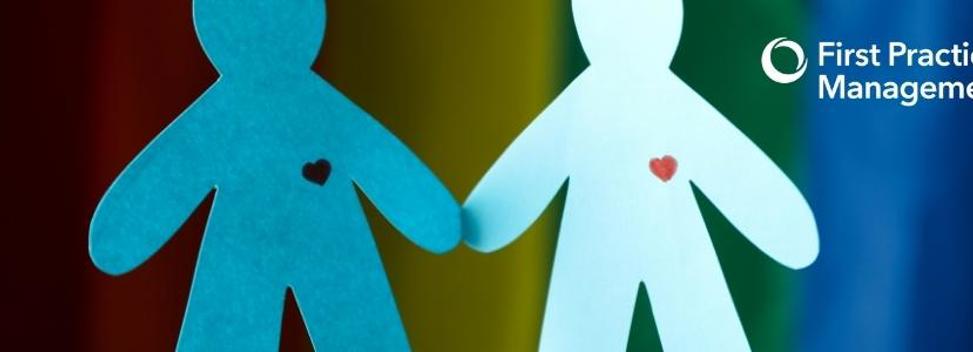
You may have heard recently that the NHS is encouraging employees to put their pronouns in their email signatures, as well as creating “pronoun badges” for employees to wear, to share their pronouns with their colleagues and patients. But why are pronouns so important, especially in the NHS, and which pronouns should you be aware of?
Personal pronouns such as “me/myself/I” are how you choose to talk about yourself. Pronouns such as “his/him/he” or “hers/her/she” are how other people choose to refer to you. For someone who is non-binary, trans or who doesn’t identify with the gender stereotypes suggested by “his or hers”, getting pronouns wrong can be hurtful and upsetting. Personal pronouns are used to convey a person's gender identity and don't necessarily align with the sex a person was assigned at birth.
“The first person to assign a pronoun to another person in a social situation (including a healthcare setting) plays a pivotal role in establishing the person’s gender identity and pronoun to those present. On a superficial level, pronoun usage may appear to be a social pleasantry that has little impact on service delivery. In fact, pronoun cueing is a fundamental component of social interactions that has the power to effectively challenge systemic inequities or to construct formidable access barriers.” (Moon, 2010)
You may be wondering why so many organisations have decided to put pronouns in their email signatures. Is it something you should introduce at your practice, and do you fully understand the reasons behind this?
Using an individual’s correct pronoun in a healthcare setting gives a non-binary person (patient or staff) “the signal that it [is] safe to bring all parts of themselves to the [healthcare setting] and that all of them [their whole self] [is] being seen” (Gibson and Fernandez, 2018).
Inclusive Employers states that many people may find it unusual, difficult to relate to and confusing, especially if they do not have much familiarity with the LGBTQ+ community. They go on to state that many cisgender people (those whose gender identity matches the sex they were assigned at birth) wonder why they should put their pronouns in their email signatures or on their badges. There are comments such as “It’s obvious I’m female” or “Can’t you tell from my name?” that are thrown about regularly, but further go to show the lack of understanding around the subject.
Up until more recently, the only pronouns really used were “his” or “hers” with “theirs” being used more regularly as a plural for a group of people. As the non-binary community has become more visible, “theirs” has been used more singularly as well as the introduction of ‘neopronouns’ such as “ze/zir/zirs”.
Adding your pronouns (and making your teams aware that they can add theirs too) to your email signatures, websites, badges, and so on doesn’t take a lot of effort but can help show that you recognise and respect everyone’s identity.
It is a way of showing your support and solidarity, but it also helps to lessen the burden of those from the trans and non-binary communities. They will feel more at ease putting their pronouns in their information and won’t have to have the same conversations over and over again.
You should ensure that you don’t mandate using pronouns, however, as there are many people that won’t feel comfortable sharing them, whether that be cisgender employees or those from the trans community. This could be for a number of reasons; for example, it could risk “outing” someone who is not ready to share or change their pronouns yet.
If you do get someone’s pronouns wrong, Stonewall suggests that apologising, correcting yourself, and simply moving on is the best way to handle the situation.
Inclusive Employers sums it up quite well: “As a society, we are making others’ lives easier by declaring our pronouns, letting people know how we identify to eliminate any confusion and therefore minimising the chance of anyone being misgendered or “outed”, with no risk or burden whatsoever to the cisgender community.
Such a simple act can lead us on the way to normalising pronouns and by doing this we can hopefully make the world a more accepting and inclusive place for all”.


0 Comments